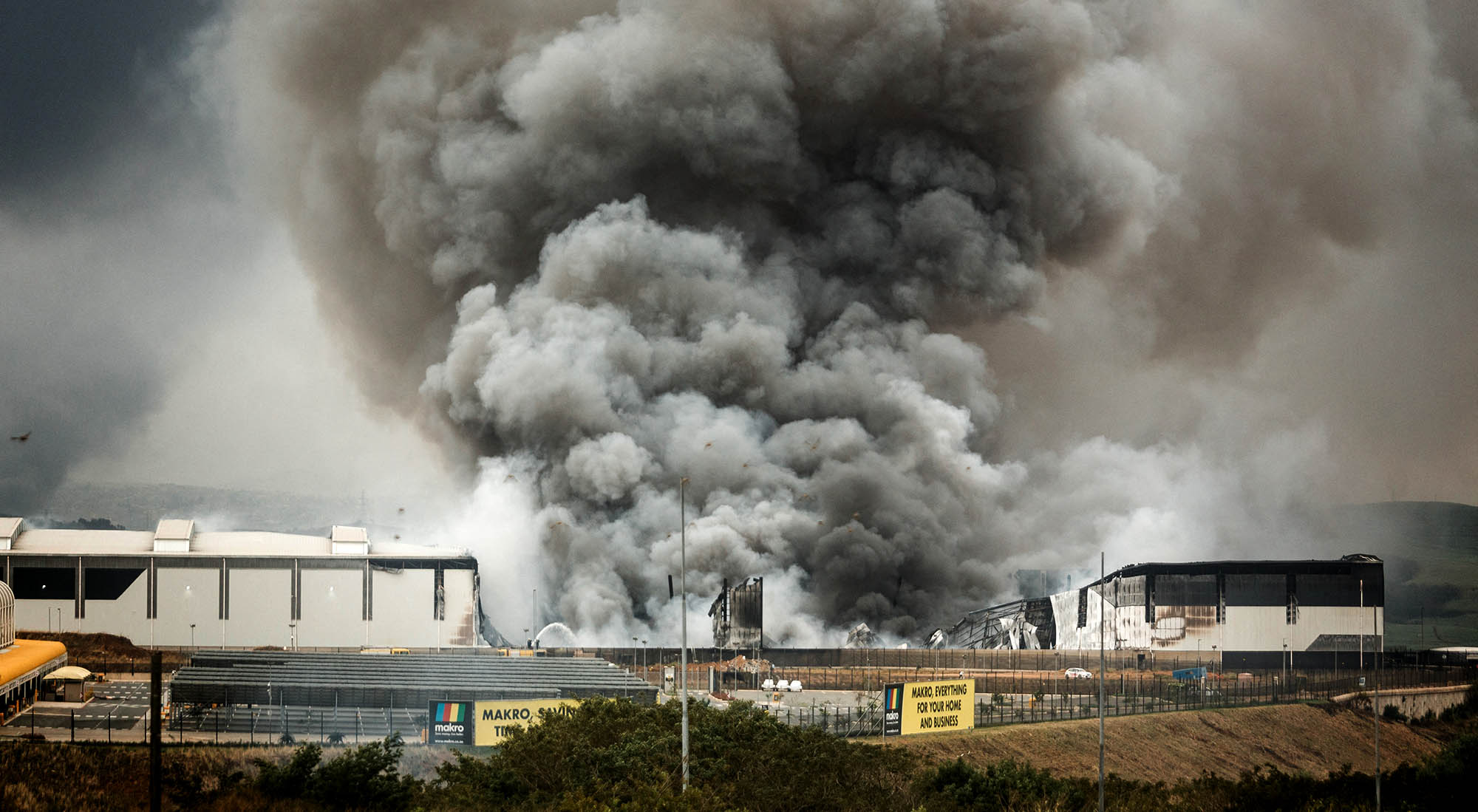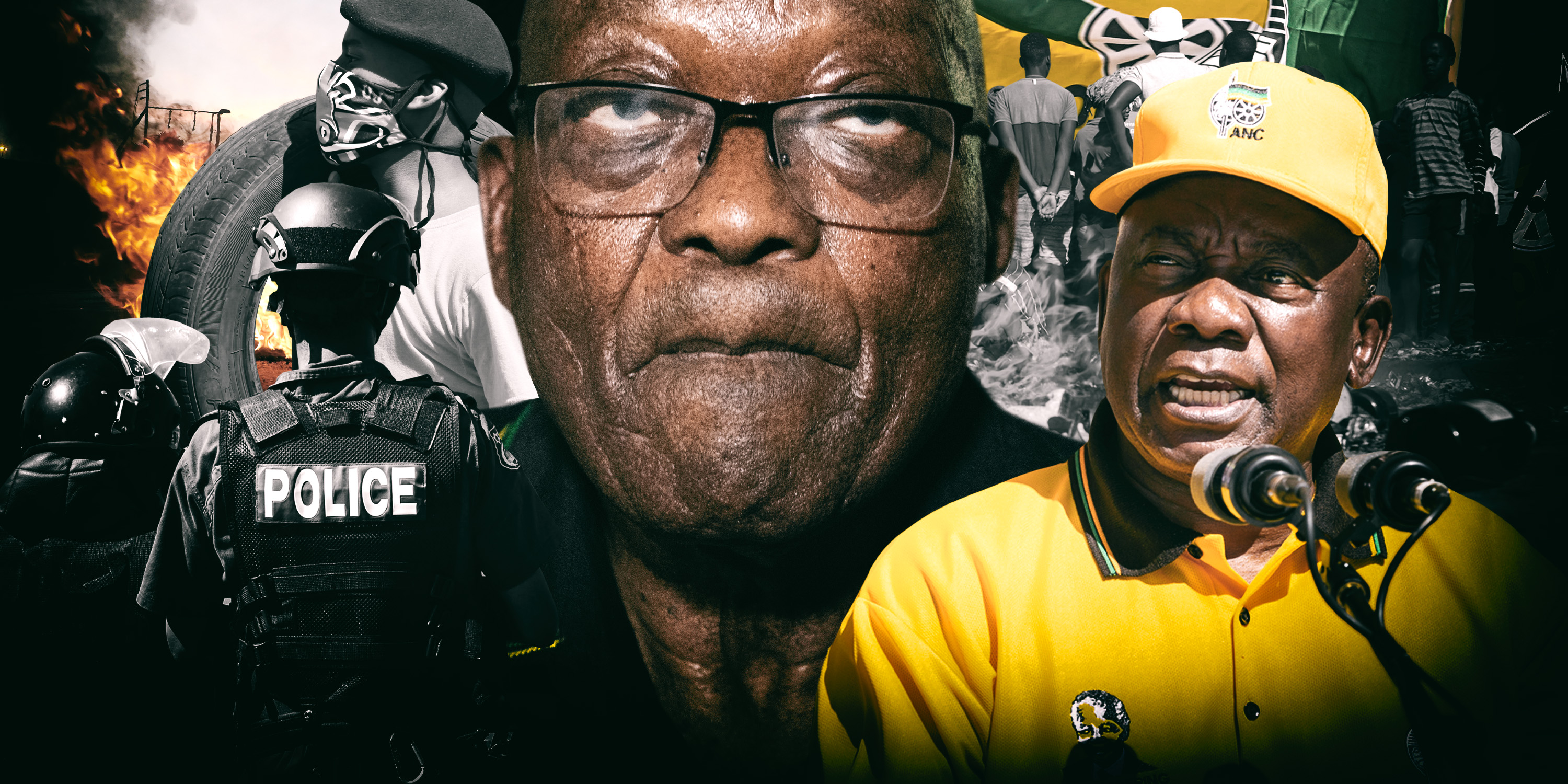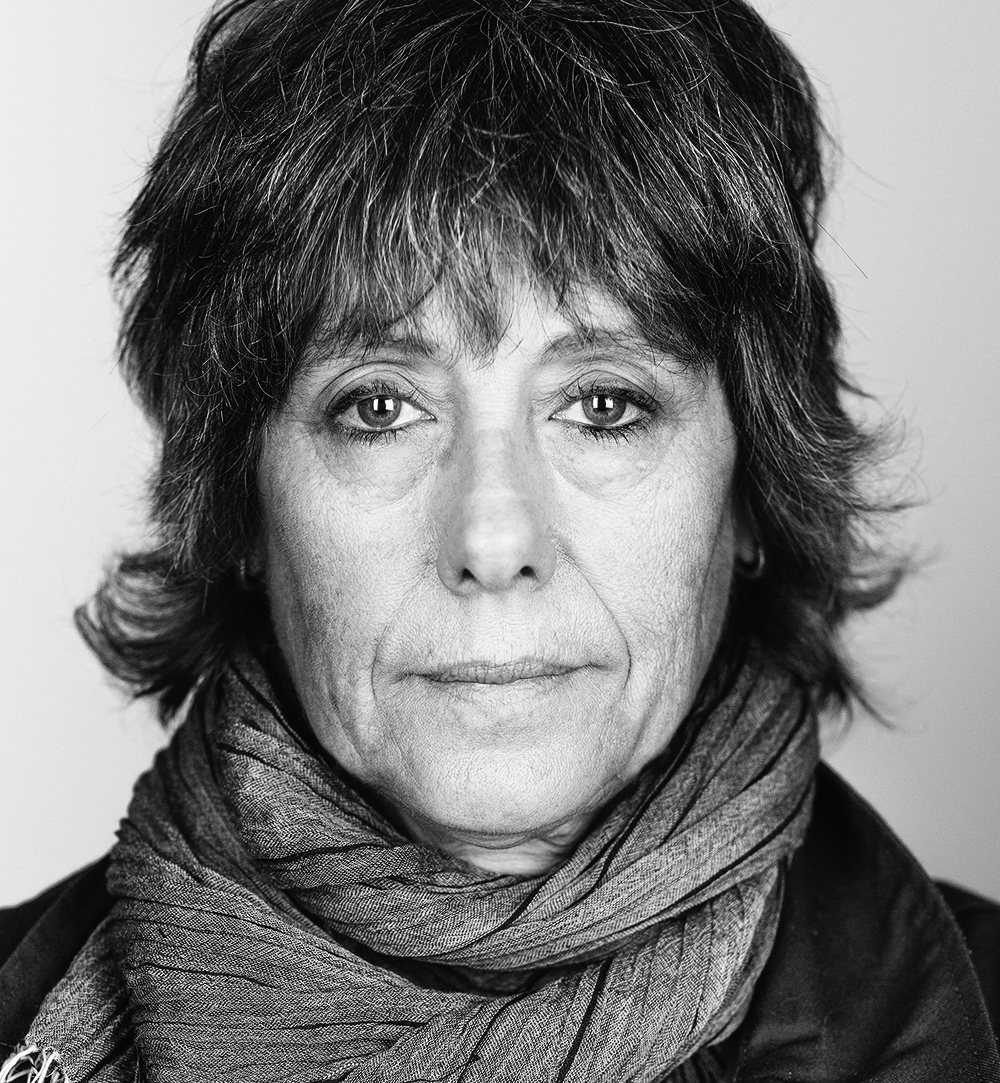The study titled “The Near Future of South Africa: Protest and Political Stability”, by authors Ivor Chipkin and Jelena Vidojević, with Laurence Rau and Daniel Saksenberg, has found “compelling evidence” that “elite contestation in the ruling party is the most significant cause of political instability and conflict in SA today”.
The report studied political stability in South Africa using quantitative techniques drawn from data modelling and AI and was funded by the Hanns Seidel Foundation as well as the Swedish International Development Cooperation Agency.
The study utilised the Institute for Security Studies’s (ISS) database on protest events as a baseline, supplemented and cross-referenced to other databases, including that of the South African Police Services and that of the Armed Conflict Location and Event Data Project (Acled).
“In this regard, this paper is unusual and innovative, we believe. It is based on the collation of large datasets in the public domain and the building of others that are not,” said the authors.
The Government and Public Policy (Gapp) study findings echo those in November 2021 of an Expert Panel appointed by President Cyril Ramaphosa after the failed July 2021 insurrection which erupted after former president Jacob Zuma’s incarceration,
The panel, headed by Professor Sandy Africa, noted that these battles would intensify in the lead up to the ANC’s elective conference in 2022.
What is underestimated in South Africa, say the researchers of the Gapp study, is the degree to which political protest “is an organised activity directed by political elites, largely from within the African National Congress”.
“Rather than a revolt of the poor, the rise in conflicts since 2009 is more likely the consequence of revolts in the ANC,” state the authors.
They found that the sharp rise in protests from the end of 2017 “suggests that President Cyril Ramaphosa does not wield the same authority” as his predecessor and, as a result, the country “has likely entered a phase of ongoing, violent instability”.
“Former president Jacob Zuma tried to bring this under control largely through patronage and repression” notes the study.
Unity, or “keeping the ANC together” had come “at the expense of the constitutional framework, the economy and the capability of state entities”.
Among other key findings are that as the ANC declines it would become less attractive to “aspirant elites” who would pursue their interests through other means.
“Simply put, elite contestation is likely to become more violent as the cake shrinks,” the authors noted.
While mass unemployment, poverty and relative deprivation provided “fuel for political entrepreneurs to light the spark of protest and insurrection”, on the whole, “there has been no mass uprising of the poor and of working people” the study found.
Post-1994, note the authors, the ANC managed contestation internally “largely by accommodating members in government positions or within the national, provincial and municipal civil service and in state agencies and state-owned enterprises (SOEs)”.
Selected entrepreneurs and capitalists were tied into a system of rent-seeking and patronage due to the country’s massive and decentralised public procurement structure. This has been amply evidenced also in the State Capture Commission.
These early accommodations within the party brought South Africa stability “while sacrificing good governance” say the authors who noted also that as early as 2004, and most certainly from 2008 onwards, “the pattern of conflict started to change.”
Whereas protests did contain a local element, “today they are increasingly national events, larger in scale and more violent”.
This was because elite contestation had become “unmanageable through the ANC’s own structures and processes and is spilling out into the rest of society”.
What stops us from falling apart, the authors seem to suggest, is that “the major achievement of the 1996 negotiated settlement was that almost all political parties and organised political tendencies accepted to broad constitutional framework in one key and basic respect.
“They accepted that political competition should proceed in and through the parliamentary system according to the rules of democratic multipartyism.”
While the ANC did this out of “principle and expedience”, say the authors, “many believed that the party had a historical right to govern, which victories in election after election confirmed”.
For almost 30 years South Africa’s democratic system had contained and moderated political competition, noted the study, adding that the ANC had been key to this stability “providing for ethnic and regional balances in its own composition.”
The movement had drawn into itself much of the contestation that might ordinarily be expressed through party-political competition.
“The result has been a dominant party system rather than a competitive one”.
This early stability obscured “ANC contradictions and contestation” but had also given credence to “political economy explanations of protest and conflict rooted in grievances about access to public goods, work and recourses”.
In this sense, South Africans had come to understand these protests as being linked to service delivery issues while in fact the bulk was related to ANC internal factionalism.
“What is underestimated in South Africa is the degree to which political protest is an organised activity directed by political elites, largely from within the ANC,” state the authors.
“Until recently, these elites pursued their political and economic interests within and through the ANC and, broadly, according to the rules of South Africa’s constitutional game.
“We found compelling evidence that elite contestation in the ruling party is a significant cause of political instability and conflict in South Africa today”.
The researchers modelled their protest dataset in relation to both service delivery and political economy datasets.
Of interest, they said, was to test whether rises or falls in protest activity coincided with increases or decreases in municipal (government) performance and/or with improvements or deteriorations in poverty and unemployment.
“The results of the modelling are surprising and significant. We find no strong correlation between either changes in service delivery and/or the political economy and protest activity” they noted.
The hypothesis of the study is that protest events, under the period reviewed, “are primarily caused by contestation in the African National Congress.
“In other words, protests in South Africa are not just political in that they are claims on power, but that they are political in that they express dynamics in the ruling party”.
What this means, say the authors, is that protests “are often events organised by power brokers in the organisation contesting for authority in a local/ regional or national structure or seeking to maintain their power”.
In order to test this hypothesis, the researchers built an ANC database consisting of important events organised chronologically.
They defined “an ANC event” as one originating from the organisation itself, as well as others events that have a significant bearing on internal power relations.
“Analysts working on political protest found that from around 2004 the number of ‘community-related’ protests in South Africa increased dramatically, peaking in 2012”.
 Smoke rises from a chemical warehouse in Umhlanga, north of Durban, on 13 July 2021 as several shops, businesses and infrastructure are damaged in the city, following four nights of continued violence and looting sparked by the jailing of ex-president Jacob Zuma. (Photo: RAJESH JANTILAL / AFP)
Smoke rises from a chemical warehouse in Umhlanga, north of Durban, on 13 July 2021 as several shops, businesses and infrastructure are damaged in the city, following four nights of continued violence and looting sparked by the jailing of ex-president Jacob Zuma. (Photo: RAJESH JANTILAL / AFP)
This analysis was based largely on data garnered from the South African police’s Incident Registration Information System (Iris).
Which revealed, say the researchers, “a surprising trend in the data”.
“While almost all studies have drawn conclusions from the dramatic rise of protest events from either 2004 or 2008 or 2011 (depending on the data source), there is almost no discussion of what happened next”.
According to the Iris data protest events began to decline after 2012 with the ISS data, which starts in 2013, confirming this trend, showing a moderate decline of protests until the end of 2014.
“While almost all studies drew conclusions from the dramatic rise of protests from 2004, 2009 or 2011 (depending on the data source), there was almost no discussion of what happened next”.
Iris data showed that public order incidents dropped between 2011 and 2012, before rising slowly until 2015 “when they stabilised at a very high level.
“Through 2017 there is a rise of incidents, coming down haltingly until 2018 when South Africa enters a period of unprecedented political unrest, culminating in the ‘insurrection’ of July 2021.
One way of making sense of this pattern was “to consider the historical moment”.
The second term of Zuma’s presidency was also the height of opposition to his rule noted the study. It was also the period of state capture, but protest activity, however, was muted.
The study also compiled data on political attacks and assassinations, “showing an unmistakable rise in both during Zuma’s second term”.
This rise “was especially dramatic in KwaZulu-Natal from 2015, off an already-high base. The number of killings then stabilised at around 60 a year”.
In Gauteng, the study noted, assassinations increased “steadily through 2016, surging to a high of 70 in 2018, before dropping”.
During the same period, the ISS noted a marked increase in what it calls ‘political attacks’, that is, the killing or attempted killing of a politically important person.
The study noted that from around 2006, political protests began rising, reaching around 200 events in 2009.
From 2011, there was “a massive increase in protests, to well over 530 in 2013. ISS data show stabilisation, followed by a decline until end-2017.
According to Acled, protests spiked in 2016 before coming down.
“These data indicate that protests settled at the very high rate of around 500 a year between 2013 and end-2017. Since 2018, protests have risen to unprecedented levels. In 2020, Acled shows, they hit 1,000 events annually.”
Recommendations of the study include that greater support be given to security services if they are to “manage the violent and criminal fallout of political conflict” and that “black empowerment” be expedited for economic expansion than party-political resources.
Further recommendations are that a national conversation be entered into as to the place of political parties in South Africa and that research be conducted into exactly who South Africa’s political elites are, “their modes of organisation, their basis for support, their attitudes and behaviours to democracy and parliamentarism”. DM
Ivor Chipkin is the Director of the Government and Public Policy Think-Tank. Jelena Vidojevic is Programme Head for International, Comparative Policy at the Government and Public Policy Think-Tank. Laurence Rau is Head of Technology at SafePassage and CEO of Emerge. Danny Saksenberg is Head of Finance at SafePassage and Executive Director of Emerge.




 Smoke rises from a Makro building set on fire overnight in Umhlanga, north of Durban, on July 13, 2021 as several shops, businesses and infrastructure are damaged in the city, following four nights of continued violence and looting. (Photo by RAJESH JANTILAL / AFP)
Smoke rises from a Makro building set on fire overnight in Umhlanga, north of Durban, on July 13, 2021 as several shops, businesses and infrastructure are damaged in the city, following four nights of continued violence and looting. (Photo by RAJESH JANTILAL / AFP) 